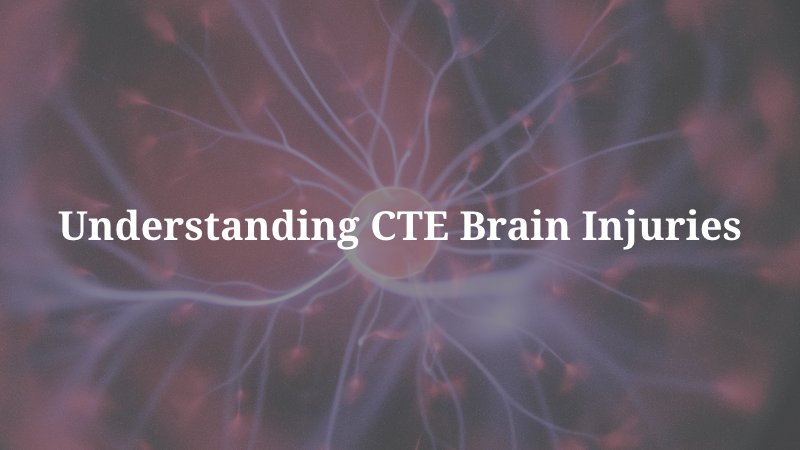Understanding CTE Brain Injuries

Repeated concussions or trauma to the brain can lead to a severe long-term condition called chronic traumatic encephalopathy (CTE). CTE is a degenerative brain disorder that causes brain inflammation and affects how areas of the brain function, communicate and work together. Unfortunately, experts are still trying to understand the extent of its repercussions as this condition can only be diagnosed at autopsy.
Symptoms of CTE
Specific symptoms have not been concretely linked to CTE, but some of the possible ones include:
- Cognitive Impairment
-
- Difficulty thinking (cognitive impairment)
- Memory loss
- Problems with planning, organization, and carrying out tasks (executive function)
- Behavioral Changes
-
- Impulsive behavior
- Aggression
- Mood Disorders
- Depression or apathy
- Emotional instability
- Substance misuse
- Suicidal thoughts or behavior
- Motor Symptoms
-
- Parkinsonism
- Motor neuron disease
It is believed that CTE symptoms take years or even decades to develop rather than showing up immediately after multiple brain injuries. CTE may first exhibit itself as mental and behavioral health issues, such as depression, anxiety, aggression, or impulsivity when a victim is in their late 20s or early 30s. At around age 60, CTE can progress into its second form, likely causing symptoms such as memory and thinking problems that can progress into dementia.
Who Is at Risk for CTE?
CTE is most commonly talked about in relation to contact sports, such as football, but it can occur in anyone who has suffered repetitive hits to the head. Those who are at the highest risk of suffering multiple head traumas include:
Athletes in Contact Sports
Any high-contact sport carries the risk of head injuries, such as football, boxing, hockey, soccer, rugby, lacrosse, water polo, skiing, snowboarding, basketball, etc.
Members of the Military
Some military service members are exposed to explosions during combat or training exercises. As a result, they can either be thrown into an object or may suffer a blow to the head from debris.
Abusive Relationships
Women, children, and men can suffer an intentional blow to the head in a domestic violence dispute. Additionally, babies that are shaken can also suffer from CTE later in life.
Accidental Falls
Unintentional falls are the leading cause of traumatic brain injuries (TBIs) in the United States.
How is CTE Treated?
Treatment for CTE involves addressing the symptoms because there is no cure. The goal of treatment is to improve patients’ quality of life and hopefully slow down the progression of the disease. Treatment will vary depending on symptoms, medical history, and other factors. Since CTE is preventable, individuals who have suffered concussions or other traumatic brain injuries must take action to prevent additional head trauma.
How Can an Attorney Help if I Think I Have CTE?
CTE can only be diagnosed after death, but another party may be liable if you believe you have symptoms after suffering a brain injury in a preventable accident. TBIs can be debilitating, resulting in extensive financial and personal losses, especially if you are demonstrating signs of CTE. However, with the help of an experienced Atlanta Brain Injury Lawyer, you can hold the at-fault party responsible and recover the compensation you deserve.

